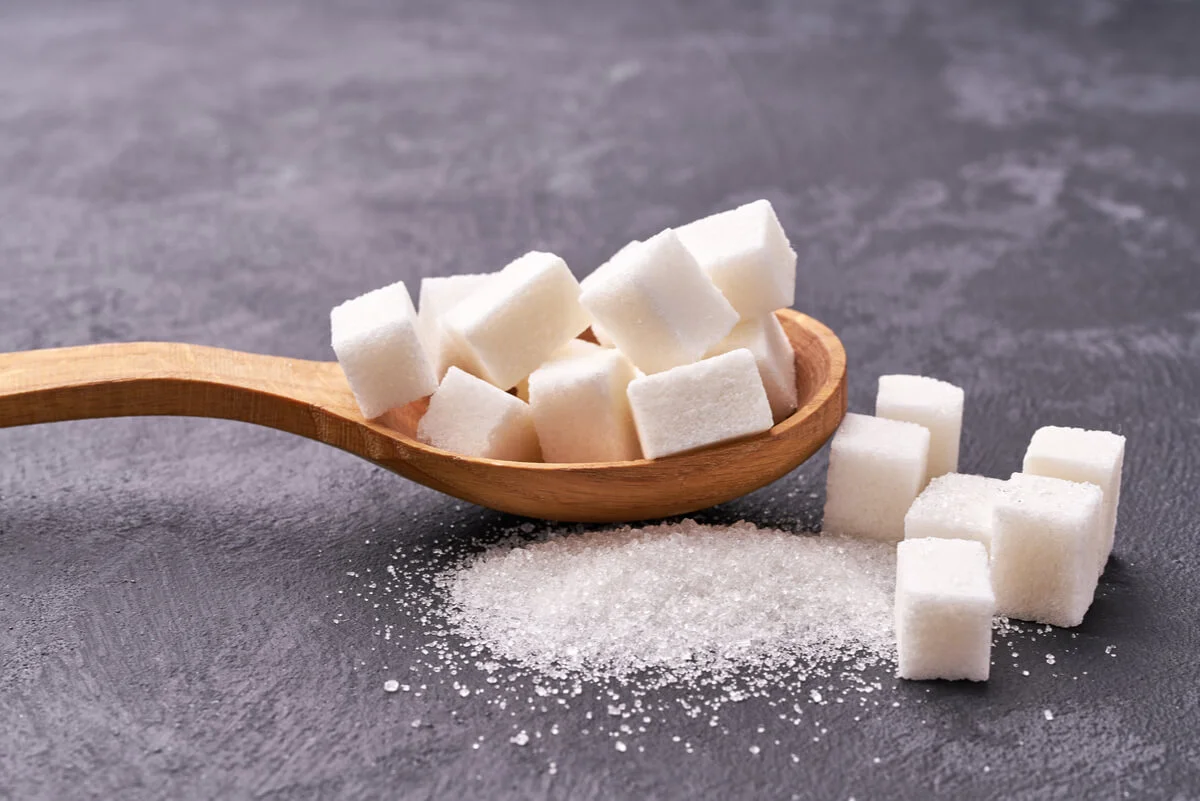Sugar addiction: reality or myth?
Author:
Julio Valero
Published on:
12/11/2024

Food dependence and weight gain: There is no evidence in humans of a model of overweight based on “sugar addiction”.
Sugar consumption has been the subject of controversy, with accusations that it can be addictive and contribute to overweight and obesity. A 2017 study set out to examine these claims.
Overview
What variables were analyzed? The incidence of food addiction, classified by type of food, and its association with body mass index (BMI) and depression.
What did they find? Participants, especially those who were overweight and those who met criteria for food addiction, reported a strong attraction to highly processed foods, combining high levels of sugar, fat and salt.
What does this mean for you? Sugar, consumed in moderation, is not the villain many believe. Although ultra-processed foods can lead to more unhealthy habits, sugar itself is not an addictive substance like drugs.
What is the problem?
The growing global obesity crisis has led to a search for culprits. Sugar, due to its sweet taste and role in the food industry, has been singled out as the main villain. The 'sugar addiction' hypothesis, comparing it to substances such as cocaine, has sparked intense debate. However, is it fair to blame a single type of macronutrient for such a complex epidemic? This article will discuss a study that used the Yale Food Addiction Scale to investigate whether humans experience a drug-like addiction to food and whether sugar plays a central role in this addiction. We will explore the limitations of extrapolating findings from rodent studies to humans and discuss the importance of considering other factors that contribute to obesity.
Objective
In order to better understand food addiction, researchers explored its relationship with the consumption of different types of food, body mass index (BMI) and depression.
Hypothesis
Despite the absence of a formally stated hypothesis, it is inferred that the authors anticipated finding a robust association between the consumption of sugary foods and the manifestation of depressive symptoms. Furthermore, it seems that they expected to observe a higher incidence of addictive symptoms associated with foods containing a variety of macronutrients.

What did they test and how?
The participants
A total of 1,046 women and 449 men, all university students between the ages of 18 and 30, participated in the study.
Study procedures
After completing an online survey, a group of 786 participants were summoned to the laboratory to participate in a physical assessment. The purpose of this assessment was to compare the height and weight measurements reported in the survey with data obtained through specialized measuring instruments.
Measures
The Yale Food Addiction Scale (YFAS) is the primary instrument for studying addiction to specific foods. Based on DSM-IV criteria, it assesses symptoms such as tolerance, withdrawal, and loss of control. Although reliable and valid, its self-administered approach has been questioned. To further explore the relationship between addiction and specific food categories, additional questions were added. Table 1 below provides examples of problematic food categories.
Table 1 Food categories and examples.
Problem Food Categories | Examples |
Low-fat savoury foods (LFSA) | light foods/snacks containing none/almost none fat or sugar; rice cake, crackers, vegetables, etc. |
Sugar foods | foods mainly/totally containing sugar without fats or protein; sweets, candy, juice, soda, dried fruit, etc. |
High-fat sweet foods (HFSW) | high fat with sugar; cake, chocolate, pastry, etc. |
High-fat savoury foods (HFSA) | high fat fat and some carbs/protein; chips/fries, meat, cheese, etc. |
Depression symptoms: The Beck Depression Inventory (BDI) is the most common questionnaire to assess the severity of depression. However, because it is self-administered, its accuracy may be limited.
A double measurement of weight and height was carried out: one self-administered by questionnaire and another direct anthropometric measurement in a validation sample (N = 786). This procedure allowed us to evaluate the concordance between both methods and ensure the quality of the data.
What Did They Find?
Food Addiction Symptoms
Of the 1,495 respondents, 95% (1,414) reported at least one symptom of food addiction, with 'persistent desire to consume' being the most common (93.8%). Most of these symptoms were linked to the combined consumption of ultra-processed foods high in saturated fats and sugars (HFSW and HFSA). 12.6% met the full criteria for addiction, with a higher prevalence in those who regularly consumed HFSW (4.7%) and HFSA (3.3%).
Food Addiction and BMI
The results of the statistical analysis demonstrated strong agreement between self-reported BMI and that determined by laboratory tests, indicating that participants provided accurate information about their weight and height.
Food Addiction and Depression
The results showed a direct relationship between the severity of YFAS symptoms and BMI. Individuals who reported more depressive symptoms also tended to show higher levels of addiction to ultra-processed foods.
What Do the Findings Mean?
The results indicate that participants who met YFAS criteria reported particular difficulties with high-fat and high-sugar foods. This underlines the complex relationship between food and emotions, and the need for a multidisciplinary approach to understanding and treating food addiction. Although this is an expected finding, given the taste and caloric content of these foods, it highlights the importance of considering psychological factors such as depression when seeking solutions.
The study design included cross-checking of BMI data, which allowed the reliability of self-reported information to be assessed. By finding high concordance between the two measures, the researchers were able to confidently use the survey data to analyze the relationship between BMI and preference for high-fat and high-salt foods. The results support the hypothesis that overweight or obese individuals tend to consume more of these types of foods.
The results of this study should be interpreted with caution due to certain methodological limitations. The subjective nature of self-reported questionnaires and the lack of detail in food categorization are factors that may influence the accuracy of the findings. Furthermore, the omission of variables such as micronutrients and salt content limits our understanding of the mechanisms underlying food addiction.
The idea that sugar causes 'addiction' is not supported by strong evidence in humans. This study, the first of its kind, found no clear link between food addiction symptoms and sugar consumption. Suggesting that a single food, such as sugar, is to blame for overweight and obesity is an oversimplification. More research is needed to better understand this complex issue.
How Can You Apply These Findings?
These results are important because they affect your health. What changes would you make in your daily diet after knowing this? Would you cut back on sugary or greasy foods?
Losing fat requires adjusting your calorie intake. Fatty and sugary foods are high in calories, so you should eat them in moderation. The exact amount will depend on your individual goals and needs. If you're an elite athlete, you may need to restrict your intake more strictly, but for most people, occasional, controlled consumption is possible. If you find that certain foods, such as sweets and desserts, are your biggest temptations and you find it hard to resist them, don't worry! You can take control of your diet by avoiding those foods that make it harder for you to reach your goals. By eliminating or reducing these foods, you'll be taking a big step toward a healthier, more balanced diet.
Gaining weight in a healthy way can be a challenge. When looking to maximize muscle growth, calorie intake is crucial. This can lead to consuming more energy-dense foods, such as those high in fat and sugar, to make it easier to meet nutritional goals. Consuming 4,000 calories a day from healthy foods can be a considerable challenge. The high energy density of many processed foods makes it easy to reach this calorie goal, but often at the expense of health. For those looking to maintain a healthy weight and not engaging in high-intensity training, limiting the consumption of ultra-processed foods is a recommended strategy.
If you struggle with depression or emotional eating, prioritize your mental health. Consult a therapist before starting any diet. Dieting will not solve emotional problems and may worsen your mental well-being.
References
Markus, C. R., Rogers, P. J., Brouns, F., & Schepers, R. (2017). Eating dependence and weight gain; no human evidence for a ‘sugar-addiction’ model of overweight. Appetite, 114, 64–72.
Gearhardt, A. N., Corbin, W. R., & Brownell, K. D. (2009). Preliminary validation of the Yale Food Addiction Scale. Appetite, 52(2), 430–436.
Long, C. G., Blundell, J. E., & Finlayson, G. (2015). A Systematic Review of the Application And Correlates of YFAS-Diagnosed ‘Food Addiction in Humans: Are Eating-Related ‘Addictions a Cause for Concern or Empty Concepts? Obesity Facts, 8(6), 386–401.
Beck, A. T., Steer, R. A., & Carbin, M. G. (1988). Psychometric properties of the Beck Depression Inventory: Twenty-five years of evaluation. Clinical Psychology Review, 8(1), 77–100.
Benton, D. (2010). The plausibility of sugar addiction and its role in obesity and eating disorders. Clinical Nutrition, 29(3), 288–303.
Hebebrand J, Albayrak O, Adan R, Dieguez C, de Jong J, et al. (2014). “Eating addiction”, rather than “food addiction”, better captures addictive-like eating behavior. Neuroscience and Behavioral Reviews, 47, 295-306
Ziauddeen H, & Fletcher PC. (2013). ¿Es la adicción a la comida un concepto válido y útil? Obesity Reviews,14(1), 19-28.
Comparte en redes sociales
Recent posts

A bad night's sleep: a reason to stay up even longer?

Creatine Effectiveness: What Does Science Say About Its Benefits?

Does meal timing help you lose fat?

Is your triceps press building muscle or holding you back?

Nutrition tailored to you: based on your genetic profile.

Carbohydrates: the key to an explosive workout.